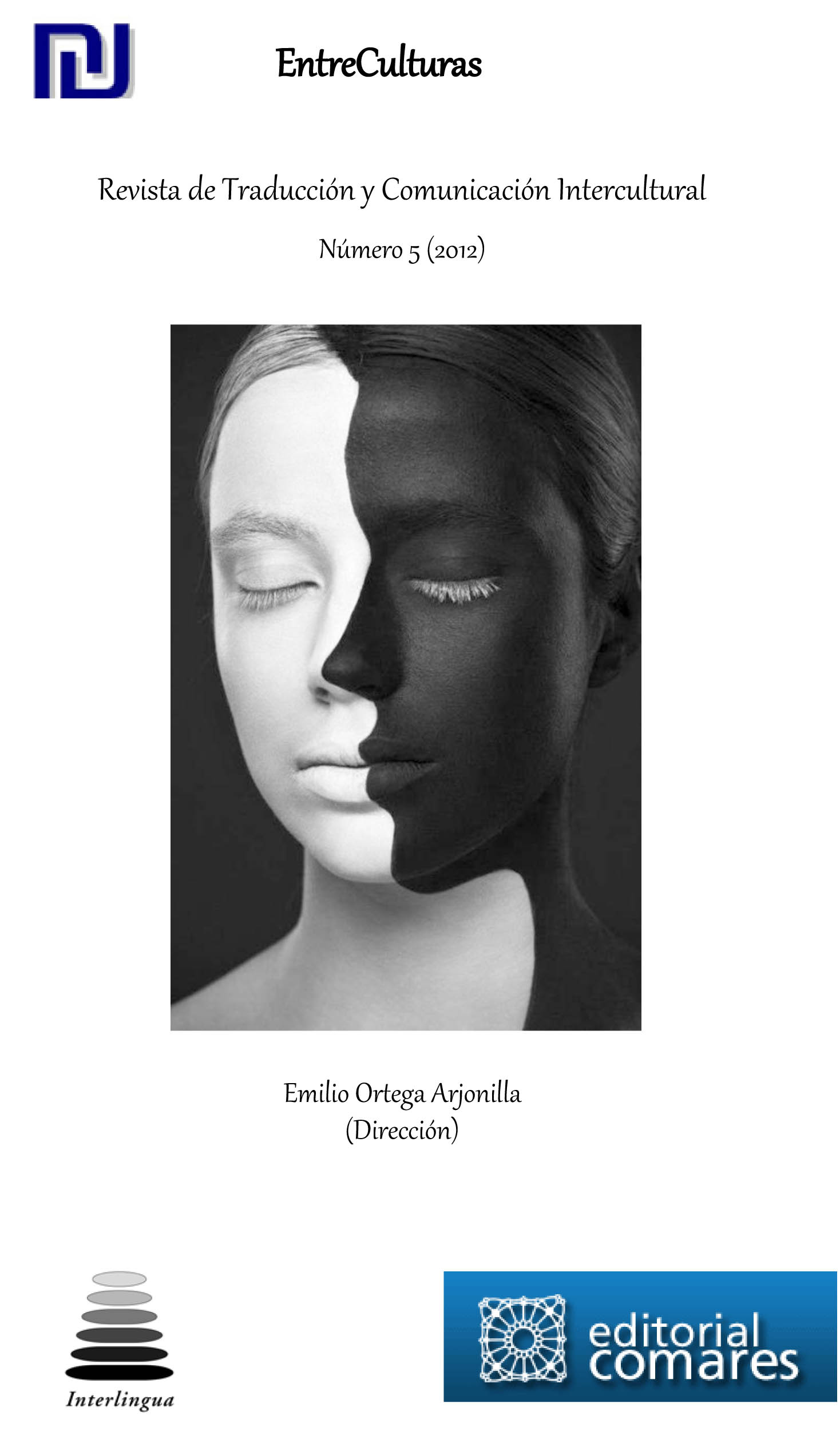THE CONCEPTS OF FIDELITY AND LITERALNESS IN THE TRANSLATION OF HUMOROUS PASSAGES
DOI:
https://doi.org/10.24310/Entreculturasertci.vi6.11546Keywords:
fidelity, literalness, translation, humour, level of idiomaticity, cultural framework, similar humorous effectsAbstract
Within the area of Translation Studies, the concepts of fidelity and literalness seem to merge into the phenomenon of literal translation. This article seeks to link the concepts of fidelity and literal translation to the translation assignment, the level of idiomaticity, and the translator‘s awareness of the target cultural framework. These three elements determine the relationship between fidelity and literalness with the aim of prompting similar effects on the target reader as those caused by the source text on the source reader. Regarding the translation of humorous excerpts, in addition to analysing carefully the source text, the translator must consider the guidelines set in the translation assignment and the possibility of opting for literal translation in case of a double coincidence: the coincidence of the level of idiomaticity in the source and target languages and the coincidence of the source and target cultural frameworks.
Downloads
Metrics
References
AUSTIN, J. L. (1962): How to do things with Words: The William James Lectures delivered at Harvard University in 1955. Oxford, Clarendon.
DOMÍNGUEZ VÁZQUEZ, M. J. (2001): "En torno al concepto de interferencia", Círculo de lingu?ística aplicada a la comunicación, 5, [en línea]: http://www.ucm.es/info/circulo/no5/dominguez.htm [consulta: 12 de diciembre de 2010].
DRAE, DICCIONARIO DE LA LENGUA ESPAÑOLA, [en línea]: http://www.rae.es/rae.html [consulta: 04 de enero de 2011].
ECO, U. (2008): "Es lo mismo ¿o no?", El País, 02/03/08, [en línea]: http://www.elpais.com/articulo/reportajes/mismo/elpepusocdmg/20080302elpdmgrep_5/Tes [consulta: 22 de diciembre de 2010].
FUENTES LUQUE, A. (2000): La recepción del humor audiovisual traducido. Estudio comparativo de fragmentos de las versiones doblada y subtitulada al español de la película Duck Soup, de los Hermanos Marx. Tesis Doctoral. Universidad de Granada: Servicio de Publicaciones de la Universidad de Granada. [cd-rom].
GIL BARDAJÍ, A. (2003): Procedimientos, técnicas, estrategias: operadores del proceso traductor. Barcelona: Universitat Autònoma de Barcelona, [en línea]: http://www.recercat.net/bitstream/2072/8998/1/TREBALL+DE+RECERCA+ANNA+GIL.pdf [consulta: 15 de diciembre de 2010]. HICKEY, L. (n.d.): "Aproximación pragmalingu?ística a la traducción del humor", [en línea]: http://cvc.cervantes.es/obref/aproximaciones/hickey.htm [consulta: 10 de enero de 2011].
HURTADO ALBIR, A. (1990): La notion de fidelité en traduction. París, Didier Erudition.
— (2001): Traducción y traductología: introducción a la traductología. Madrid, Cátedra.
MOYA JIMÉNEZ, V. (2004): La selva de la traducción: teorías traductológicas contemporáneas. Madrid, Cátedra.
OCHOA SANTAMARÍA, I. Y F. LÓPEZ SOCASAU (1995): From Lost to the River. Madrid, Booket.
PONCE MÁRQUEZ, N. (2007): "El apasionante mundo del traductor como eslabón invisible entre lenguas y culturas", Revista Electrónica de Estudios Filológicos de la Universidad de Murcia, 13, [en línea]: http://www.tonosdigital.com/ojs/index.php/tonos/article/view/95/0. [consulta: 29 de diciembre de 2010].
— (2009): La traducción del humor del alemán al castellano. Un análisis contrastivo- traductológico de la versión castellana del cómic Kleines Arschloch de Walter Moers. Universidad de Sevilla, Servicio de Publicaciones de la Universidad de Sevilla. [cd-rom].
SANTANA LÓPEZ, B. (2006): Wie wird das Komische u?bersetzt? Berlin, Frank & Timme GMBH.
SANTOYO MEDIAVILLA, J.C. (1994): "Traducción de cultura, traducción de civilización" en Hurtado Albir, A. (ed.): Estudis sobre la traducció. Castellón de la Plana, Servicio de Publicaciones de la Universidad Jaume I, pp. 141-52.
VÁZQUEZ AYORA, G. (1977): Introducción a la traductología: curso básico de traducción. Washington, D.C., Georgetown University Press.
Downloads
Published
How to Cite
Issue
Section
License
All contents published in Entre culturas. Revista de traducción y comunicación intercultural are protected under the Creative Commons Attribution-NonCommercial-ShareAlike 4.0 International (CC BY-NC-SA 4.0) license. All about this license is available in the following link: <http://creativecommons.org/licenses/by-nc-sa/4.0>
Users can copy, use, redistribute, share and exhibit publicly as long as:
- The original source and authorship of the material are cited (Journal, Publisher and URL of the work).
- It is not used for comercial purposes.
- The existence of the license and its especifications are mentioned.
There are two sets of authors’ rights: moral and property rights. Moral rights are perpetual prerogatives, unrenounceable, not-transferable, unalienable, imprescriptible and inembargable. According to authors’ rights legislation, Entreculturas. Revista de traducción y comunicación intercultural recognizes and respects authors moral rights, as well as the ownership of property rights, which will be transferred to University of Malaga in open access. The property rights are referred to the benefits that are gained by the use or the dissemination of works. Entreculturas. Revista de traducción y comunicación intercultural is published in an open access form and it is exclusively licenced by any means for doing or authorising distribution, dissemination, reproduction, , adaptation, translation or arrangement of works.
Authors are responsable for obtaining the necessary permission to use copyrighted images.





7.png)
